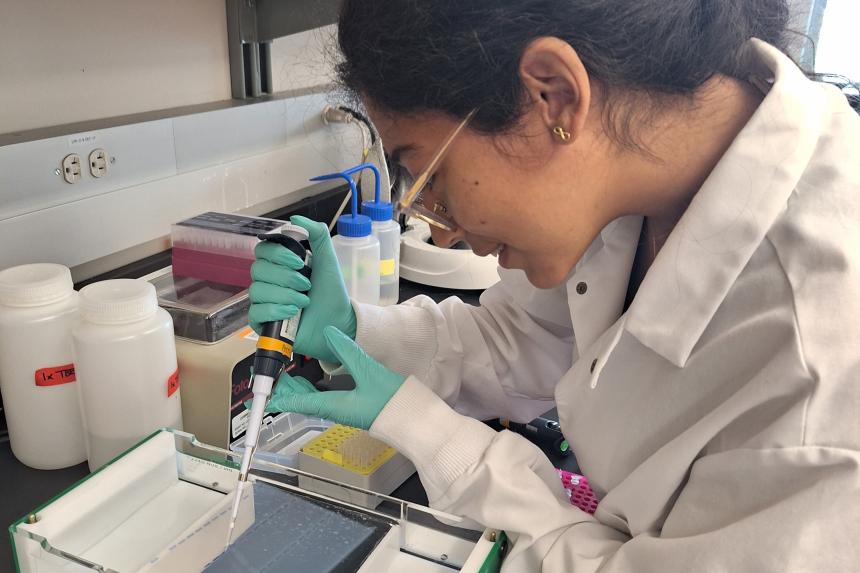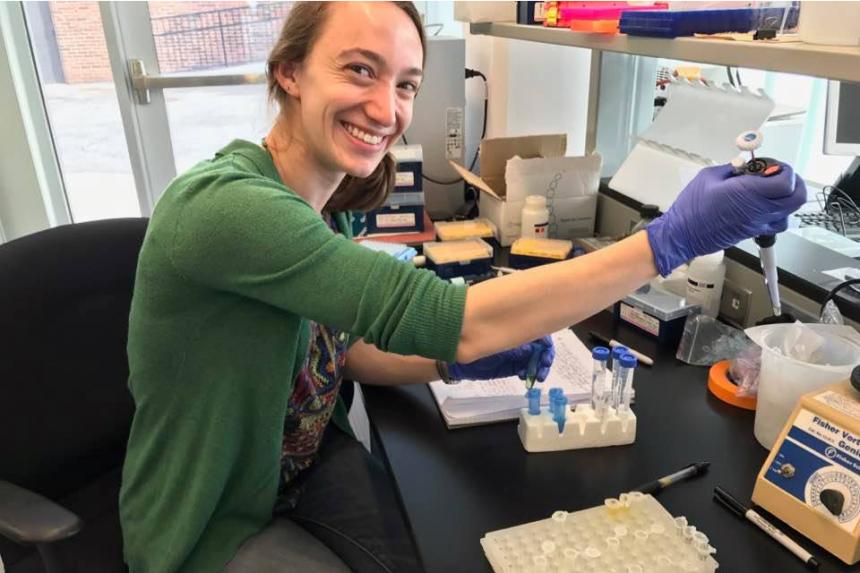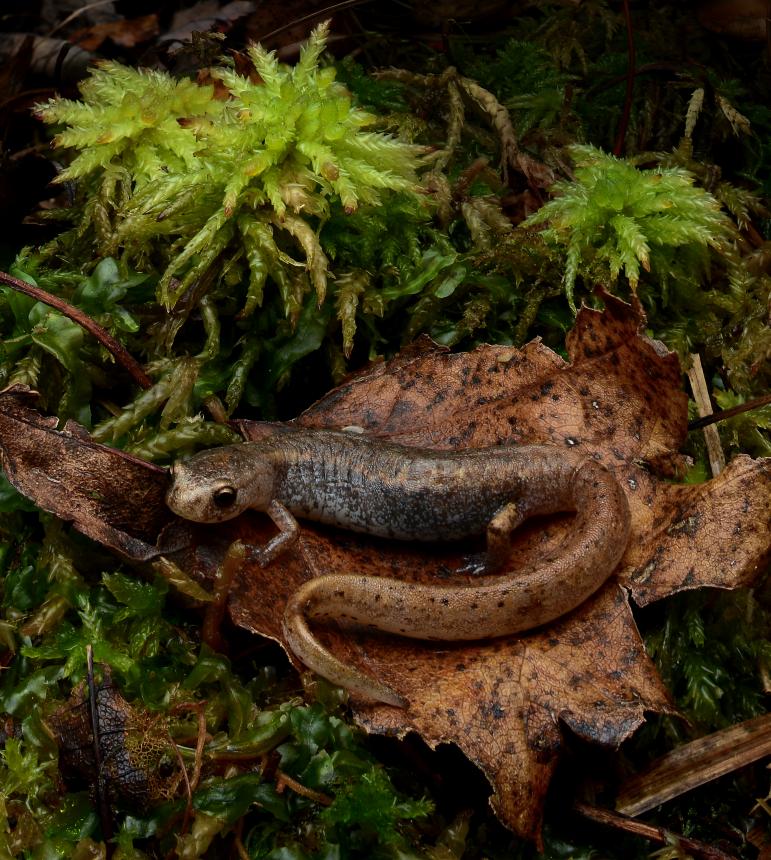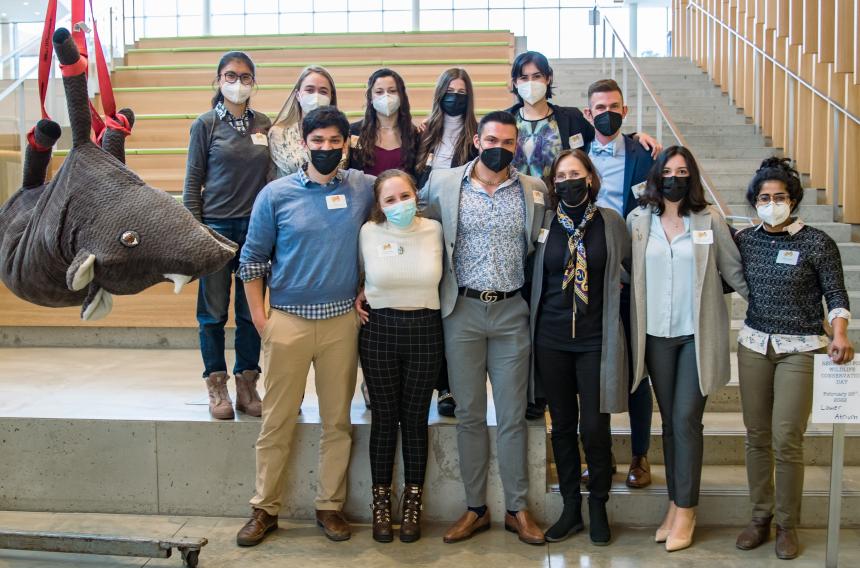In the News

Blog
December 19, 2024
My role within the Cornell Wildlife Health Lab (CWHL) is a grab bag of all things related to molecular biology - meaning that no two days are ever alike, and I never do all the different parts of my job in a single day....

May 13, 2024
Ever wonder what happens with our students after they are done working/learning with the Cornell Wildlife Health Lab? Well, we keep in touch and follow their journey beyond CWHL. Here's a look at what a few of our wildlife students have planned next.

March 08, 2024
When observing a hoard of golden-backed frogs at a roadside pond in India, a group of naturalists noticed something odd — one animal had a tiny mushroom sprouting out of its side. Cornell's Dr. Alyssa Wetterau Kaganer weighs in and finds the discovery fascinating.
![Mountain Chicken Frog shown in a wooded area dunder1564 [CC BY 2.0]](/sites/default/files/styles/large/public/2023-11/Mountain%20Chickken%20Frog%20CC%20BY%202.0%20DEED.jpg?itok=IRk3CN0z)
November 02, 2023
Cornell postdoctoral associate Alyssa Kaganer discusses chytrid disease and how we can help protect amphibians from this deadly fungus.

News
June 05, 2023
Dr. Alyssa Kaganer began working with wildlife as an undergraduate student at Cornell University in 2012. She recalls “stumbling” into research at the Cornell Wildlife Health Lab, where she was mentored by Drs. Krysten Schuler and Elizabeth Bunting.

February 13, 2023
Chytridiomycosis has caused significant declines and extinctions of many amphibian species. In a new paper, Cornell scientists have found that an oral vaccine can stimulate an immune response and help some species fight the deadly disease.

January 05, 2023
Protecting wildlife is hard, and a key step to determine if a wildlife species needs conservation intervention is finding them. The Cornell Wildlife Health Lab's Alyssa Kaganer describes using eDNA techniques to successfully find four-toed salamanders.

December 12, 2022
Cornell Animal Science major Genesis Contreras ’24 needed her service dog to keep her safe while working with the Cornell Wildlife Health Lab, but Nugget, a 4-year-old beagle, needed to be safe as well. A team across Cornell found a solution: "doggles."

For Your Information
June 30, 2022
Successful conservation efforts for threatened species depend on accurate characterization of their distribution, habitat use, and threats. Environmental DNA (eDNA) monitoring can provide a sensitive and noninvasive alternative to traditional surveillance techniques.

March 21, 2022
Cornell’s Zoo and Wildlife Society hosted its first Wildlife Conservation Day Feb. 26, a one-day symposium devoted to education and training for students with an interest in non-domestic species.
